It’s tempting to think of cold and flu season as a time when all the rules of healthy living go out the window. You’re bundled up, you won’t go outside if you can avoid it, and you’re trying to keep warm by staying inside and drinking hot cocoa with your loved ones. That can make it easy to forget about things like exercising or eating healthy meals, and it’s easy to find yourself in a rut once winter is over. Here are a few simple hacks to help you stay healthy during the cold months.
Take supplements
The immune system is a delicate balance between cells that fight off infection, and healthy phlegm production. When this balance is disrupted, your immune system will be less able to respond effectively to bacteria and viruses in your environment, which increases your risk of getting sick.

In the winter months when you’re spending more time huddled indoors to avoid the cold weather, it’s more likely that you will come into contact with an illness-causing virus or bacteria. Supplements containing herbs and nutrients such as Echinacea, garlic, vitamin C and zinc have been shown to support healthy immune function.
Stay active
It can be difficult to get your workout in when the weather is cold and uninviting. But remember that keeping active during the winter is essential to support your health. You’ll be glad you did when spring comes back around.

Since it’s cold outside (especially at night) you might not feel like going for a run or bike ride, but there are still lots of things you can do indoors. You can swim laps, go to the gym, take dance classes or even try some yoga!
Eat a healthy diet
Eating well during the colder months is essential for maintaining your health and well-being. When winter sets in, it’s easy to convince yourself that you’ve earned some extra indulgences – but if you’re trying to maintain a healthy diet, it’s important to eat well all year round.

The winter months are a great time to focus on adding more vegetables into your diet – sweet potato, carrots and parsnips are particularly warming staples that provide essential nutrients and add both flavour and texture to soups and stews. Garlic, ginger and chilli peppers can also add zing to recipes without the need for extra fat or salt.
Get enough sleep
Although your body may not feel ready for bed, not getting enough sleep can actually make it harder for your body to fight off sickness. The immune system, which protects against infection, works best when you’ve had enough sleep. Although most adults need at least eight hours of sleep each night, some people need even more than that, or less.

The amount of rest needed varies by person because many factors influence how much sleep a person needs including age, health and the amount of physical activity performed during the day. Studies show that sleeping less than six hours per night can affect your immune system and lead to increased susceptibility to illness.
Drink water
We all know that drinking enough water is essential for our health. But it’s easy to forget to drink water when it’s cold out – we don’t notice ourselves feeling as thirsty. But if you eat a lot of spicy or salty foods, or if you’re exercising a lot, you still need to drink two litres of water each day.

Even though air temperatures are lower, your body is still losing moisture through your breath and sweat. That’s why it’s important to stay hydrated even if you don’t feel like you’re thirsty. If you’re having trouble drinking enough water day-to-day, try adding some herbal tea to your routine.
Stock up on medicine
It’s true that the colder seasons are prime time for sickness. Everyone is aware of the importance of taking care of ourselves and practicing good hygiene, but we can’t always prevent ourselves from getting sick. One simple way to help yourself stay healthy this winter is by keeping an arsenal of medicines in your medicine cabinet.

When you’re under the weather, the last thing you want to do is run out to the pharmacy to buy over-the-counter medications just because you forgot to pick them up when you were at the store last week. Make sure to stock up on cough lozenges, painkillers, cough syrup, and nasal spray.
Wear enough layers
The cold can be a real pain in the backside, especially when you’re trying to get things done. It’s not just uncomfortable – it can also make you more vulnerable to illness. This is why it’s essential that you bundle up appropriately when heading out into the winter.

If you are experiencing cold weather, it can be easy to forget some of the basics – like making sure you wear multiple layers of clothing and a hat and gloves. Not only will this help you to stay warm, but it will also ensure good health and well-being.
Moisturize
Winter can be a tough time for our skin – it feels dry, itchy and dehydrated. Even when we are all in the thick of winter, it’s never too late to make some simple adjustments to your skincare routine so that you can have healthy, glowing skin all year round.
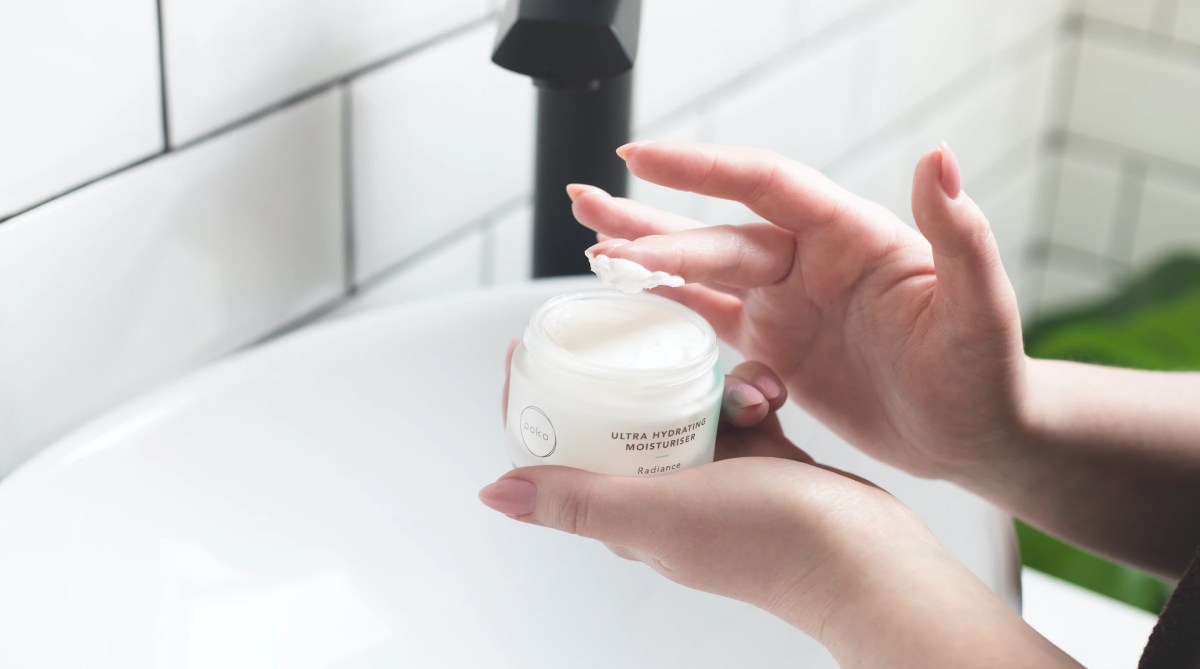
For example, switching up from using a facial cleanser to a gentle exfoliant can help remove dead skin cells and make sure your face doesn’t get too dry in these cold months; you might also want to invest in a moisturizer or serum with ingredients like ceramides and hyaluronic acid.
Don’t isolate yourself
The problem with mental health is that it can easily go unnoticed until it’s about to fall apart. By then, it’s too late to patch it up and stop it from falling apart completely. That’s why now, in the winter months when we’re all prone to sitting inside, we should check on our mental health.

If you spend too much time indoors by yourself, you could find that your mental health starts to feel the effects of isolation. It’s okay to take a few days to relax and rest, but don’t neglect your friends and family – and make sure that you’re still spending quality time with them.
Wash your hands
When cold/flu season is upon us, it’s important that we think about how to minimize our exposure to germs. Unfortunately, it’s easy to get sick this time of year, even for people who are otherwise healthy. Since germs are everywhere, you can’t completely avoid them, but practicing good hygiene can help you stay healthy.

There is no better time than the winter to pay close attention to your hand-washing skills. With all the holiday parties and gatherings, there are more opportunities for you to get sick. This is true even if you spend time with people who are healthy, as germs still spread by human contact.
Take Vitamin C
Vitamin C is the body’s main defense against colds and flu. When healthy people get sick, it’s usually because their immune system is weakened by something else. In these cases, vitamin C may help your body fight off or recover from illness more quickly.

Still, that doesn’t mean you should take large amounts of vitamin C supplements to avoid sickness. The best way to get enough vitamin C is through diet: fresh fruits and vegetables like citrus fruits, berries, kiwis, broccoli, bell peppers, green beans and grapefruit.
Wear a mask
We all had to get used to wearing surgical masks in public during the COVID-19 pandemic, but you should consider wearing one whenever you’re out and about this winter. You may think that the masks are unnecessary, but in reality, they can help make all the difference when it comes to not getting sick.
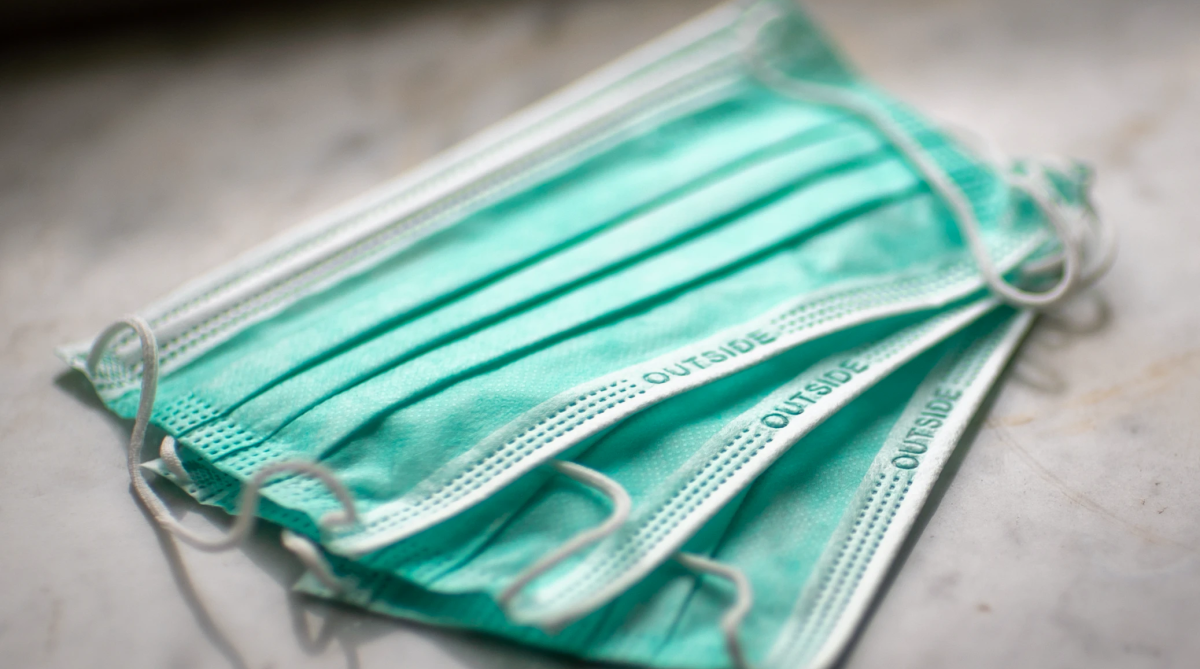
The reduction in exposure that a surgical mask provides is beneficial for everyone. Not only does it reduce your own chances of contracting any airborne viruses, it also makes it less likely that you will spread your own germs to other people.
Wear SPF
In the summertime, we tend to think of sunblock as a precautionary tool for preventing painful burns. But with winter weather comes the much more dire threat of skin cancer. Sun damage can occur in any season, and it’s important to protect your skin from harmful rays in the cold months as well.
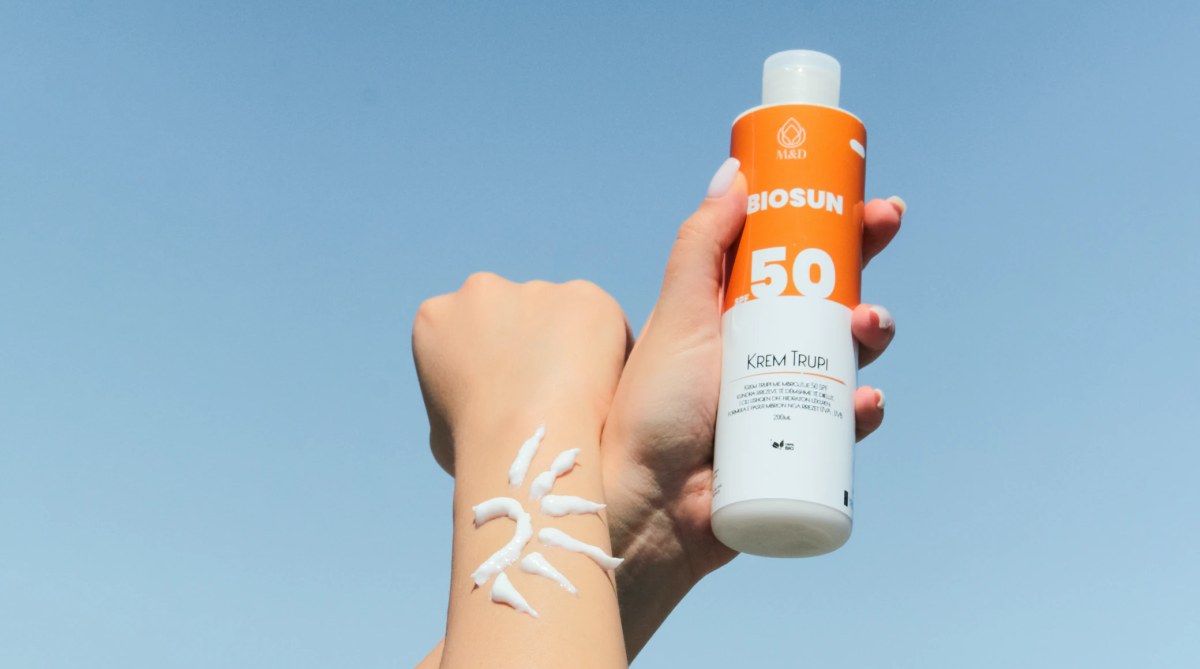
What’s more, snow reflects 80 percent of UVA rays compared to only 25 percent that are reflected from sandy beaches in the summer. This means that your risk of sunburn or UV damage is much greater when you’re out in the cold than when you’re out relaxing at a beach on a hot day.
Try yoga
The holidays are a perfect time to indulge in a little self-care. Joining a local gym or finding a yoga class or DVD at home is the perfect way to stay healthy and unwind from the stress of the season.

While most people think of yoga as a practice involving only physical activity, it also nurtures the mind and provides mental relief in addition to physical benefits. By staying active during the winter months, you will be able to approach your holiday celebrations with positivity and energy.
Get a humidifier
Humidifiers aren’t just for when you have a cold. They’re great for the whole family all year round. During the winter, they add moisture back to dry air which can help prevent dry skin and sinus issues. They’re also great for preventing infections that make their way through your office or classroom.

They’re incredibly affordable and they’re easy to maintain and clean – just fill them with water, turn them on, and let them run for up to 12 hours. They’re especially great for keeping you healthy in situations when you’re stuck indoors for long stretches at a time.
Quit smoking
Smoking is detrimental to health. It causes lung cancer, throat cancer, emphysema and bronchitis, leads to heart disease and impairs the immune system. During winter, smokers tend to get infections like colds, cough, fever and flu more than non-smokers because they do not have proper resistance against these infections.

In winter, the environment is filled with dry air and there is less moisture in the air. This makes the environment prone to respiratory disorders such as cough and cold. When an individual smokes, it becomes difficult for their body to inhale oxygen as they already have smoke-filled lungs which impedes oxygen absorption.
Get regular check-ups
Cold weather is the culprit of many winter health issues. The low temperatures can trigger asthma, flu, sore throat, painful joints, and an increased risk of heart attacks. Flu and colds are more likely to strike during winter months because people spend more time indoors in enclosed spaces where germs can easily spread.

A regular health checkup can help prevent some of these issues from occurring. If you have health problems like high blood pressure or diabetes, you should consult your physician to take appropriate measures to ensure safety during the holiday season. This could mean adjusting medication or changing your diet to build up your immunity.
Cover up drafty spots
Blocking out drafts is one of the most important steps you can take toward staying warm and healthy in the winter, whether it’s inside or outside. Drafts can enter your home through any space where there isn’t insulation like gaps around window frames, keyholes or under doors.

If your drafty areas aren’t sealed properly then heat will escape from your home too – especially when you have doors or windows open during colder months. By reducing how much heat escapes from your home, you’ll also be able to save money on heating.
Eat hot food
The winter is coming and the temperature is getting colder. It is common to catch colds or flu during winter because your immune system will be weaker when it is cold. To keep yourself warm, go for warming food such as porridge, soup, or stew with plenty of vegetables.

Soups are especially easy to make and can be eaten for breakfast or lunch. Soups are full of vitamins and minerals, which are good for your health. Not only that, but they also contain lots of fiber which makes you feel full for longer so you won’t have cravings for snacks during the day.
Get Vitamin D
In the winter months, there will be less sunlight – and therefore less Vitamin D available from the sun – to help your body absorb calcium. Vitamin D deficiency (which can lead to osteoporosis and rickets) is common for people who live in northern climates or who don’t get enough exposure to sunlight.

The next best source of Vitamin D comes from fish, eggs and fortified cereals. But if diet alone isn’t enough, consider a Vitamin D supplement. A supplement can be particularly helpful if you’re mostly sequestered indoors over the winter months.
Cut down on caffeine
It can be hard to resist the temptation and comfort of that first cup of coffee in the morning. You may have heard about the toxic effects of caffeine on your body and may be looking for a suitable alternative. A hot drink, nonetheless, is inviting when you’re trying to keep warm.

It is best to avoid caffeine consumption because it increases cortisol levels and interferes with your metabolism. Caffeine also stimulates the production of adrenaline, which increases your heart rate and blood pressure. If you are looking for a substitute, try tea or matcha.
Take baths instead of showers
Soaking in hot water has myriad health benefits, and the best part is that it’s easy and accessible. You don’t have to spend money on fancy treatments at a spa or even give up your time – just find yourself a bathtub, hot tub or hot spring and just lie there. That’s it.

Some research has linked regular hot baths with lowered blood pressure and heart disease risk. To top it off, a hot bath is relaxing for your mind as well – it can help clear your thoughts, relieve headaches and calm down muscle tension.
Practice self-care
Fall and winter is a great time to think about taking some time for yourself. We all naturally slow down in the winter months, but that’s no reason to get stuck in a rut. There are many things you can do during the fall to get your mind and body ready for the days ahead.
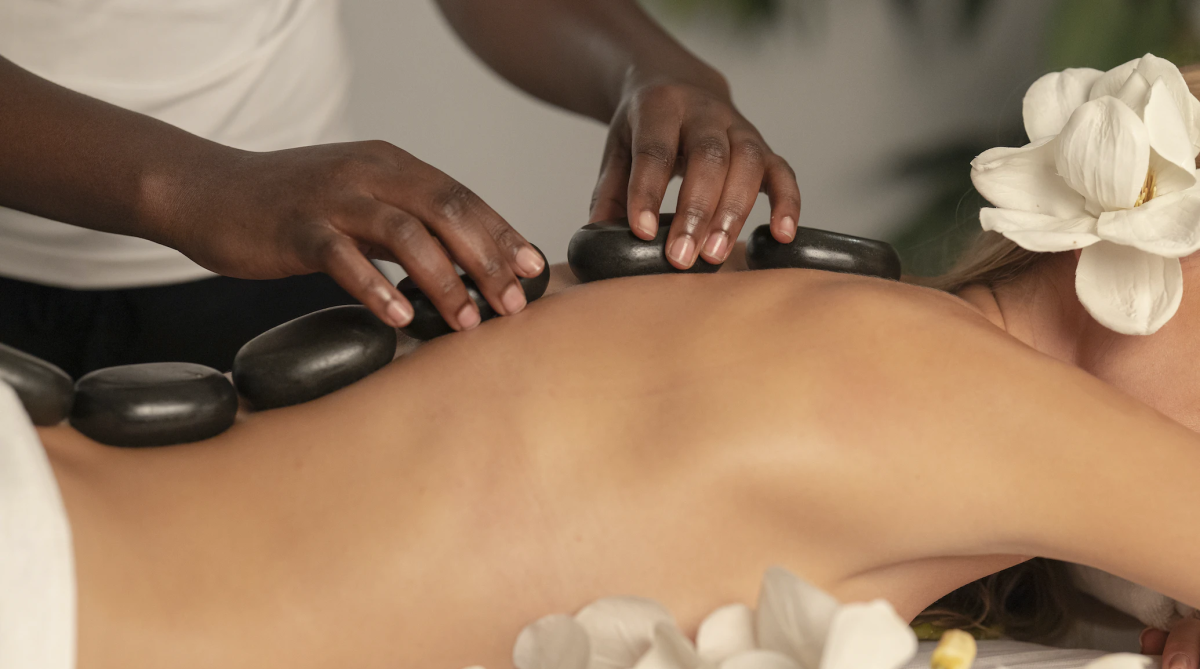
There are so many ways that we can take care of ourselves during the holidays: we can go for manicures and massages; we can take long bubble baths; we can try some new recipes; we can even treat ourselves to a day at the spa!
Keep your feet warm
Frozen toes are a cold weather scourge that can ruin even the most luxurious footwear. To take care of those icy digits, we recommend keeping a pair of slippers or wool socks by your door so you can slip them on as soon as you come inside.

When you’re out and about, make sure to wear waterproof shoes. If it’s cold enough for snow, boots are ideal, but if the weather is just wet, then heavy rain boots will do the trick. Thicker shoes will keep your feet warm by trapping in body heat.
Eat superfoods
As the weather gets colder, it’s time to start getting ready for the long winter ahead. It’s easy to focus on the negatives – the shorter days, the colder temperatures, and of course, the weight gain that comes from eating more comfort food in front of the fireplace or in pajamas.
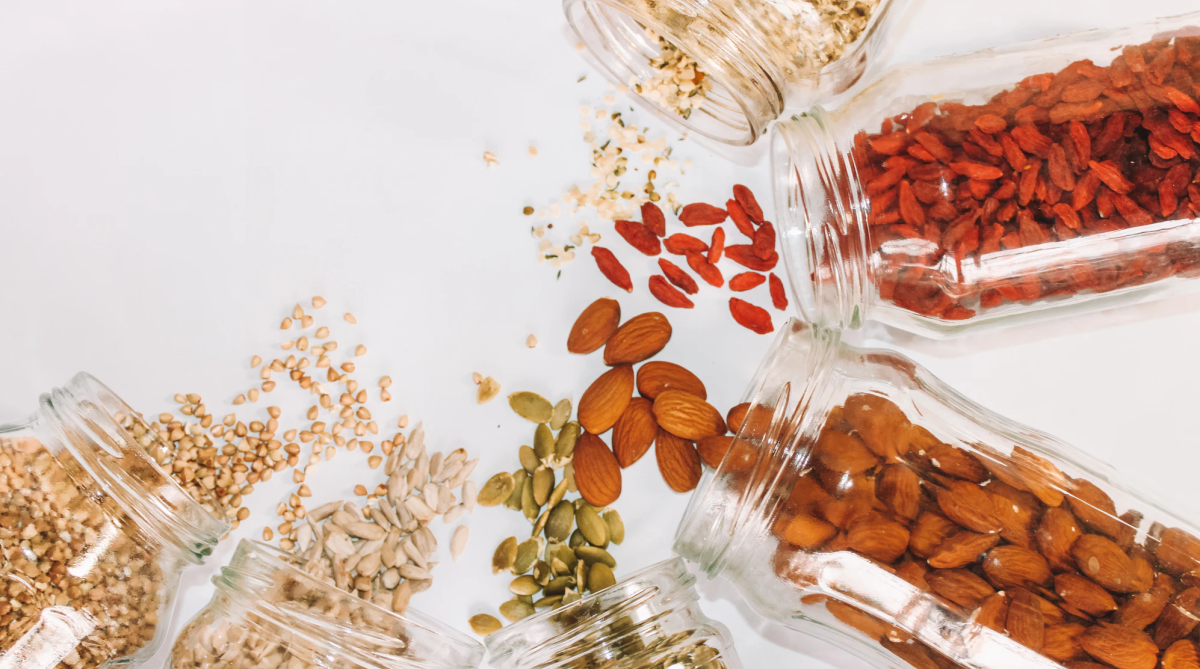
But there are lots of ways to keep your body in peak condition despite the season. One is to add more power foods to your diet. Immune-boosting and anti-inflammatory foods like oatmeal, pumpkin, cranberries and avocados can help ward off illnesses while providing a healthy dose of vitamins and minerals.
Stay up to date with your flu shots
If you’ve ever had the flu, you know that it’s not really something to mess around with. It’s miserable, and in some cases, it can even be deadly. This is why the CDC recommends regular flu shots: they want you to stay healthy and avoid getting sick in the first place.

Flu season typically starts in October or November, but if you haven’t gotten your shot yet, there is still time. If you get a vaccination now, it will ensure that your immune system has some protection when the virus shows up again next year.
Deep condition
During the cold, dry winter months, it’s important to take special care of your hair. Dehydration is a real problem, so make sure you’re doing everything in your power to guard against it. You can do that by deep conditioning at least once or twice per week depending on your hair type.

Deep conditioning involves applying a heavy product to your hair and leaving it on for at least fifteen minutes as you let it sink into your follicles. This can be done in the shower, with a towel wrapped around the head, or even by covering the hair with plastic and sitting under a hair dryer.
Don’t share
It’s not just that the cold, damp weather outside makes us more likely to catch a cold – it’s also that we spend more time indoors with other people in close quarters. This is why cold and flu season tends to peak in the winter months.

When you are around someone who has symptoms of the flu, make sure to wash your hands often when you come home from spending time with them. Also, try to avoid sharing utensils or drinks with them, and don’t use their towel or sheets without washing them first.
Prioritize your gut health
A lot of people don’t know this, but the majority of our immune system is located in our gut. This means that supporting our gut health can keep us healthy in a lot of ways. It’s easy to forget about taking care of our guts when we’re more focused on the common cold.
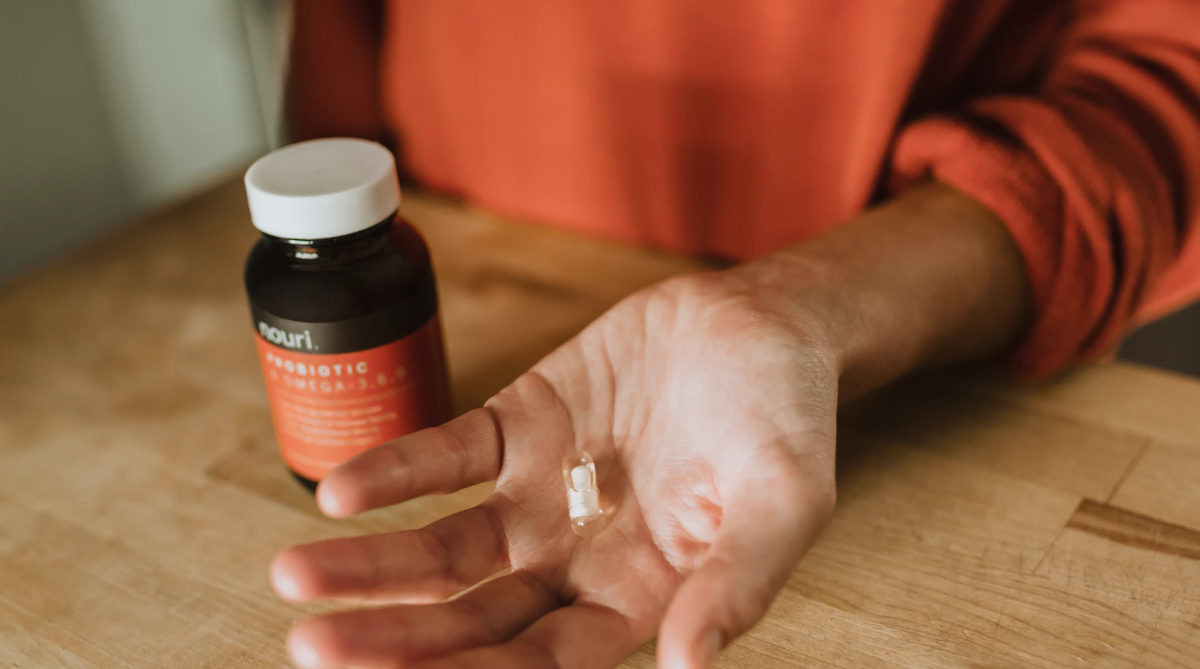
However, it’s important to remember that a lot of illnesses show up first in our digestive systems. Taking probiotics is one way to ensure that your body stays strong all year long. Probiotics are just as important as your daily vitamins – maybe even more! They help support your immune system and promote healthy digestion.
Get your steps up
The best way to stay active during the colder months is to get your daily steps in around the house. Instead of lazing on the couch, try getting up and doing some squats or lunges in front of the TV. Go for a quick stroll around the lounge while you finish off that phone call.

Use an activity tracker to set yourself a daily step target and track your progress! Set a target like the number of steps you would normally get in summer. No excuses! Wintertime is perfect for staying fit without leaving your home.
Keep your space clean
When the winter season rolls around, you’ll probably notice a few changes in your environment. The days get shorter, and many of us tend to stay indoors more often. With all of this change, it’s important to maintain a clean and healthy home environment.

This can include dusting the rooms, vacuuming floors, and making sure all surfaces in your house are spotless. Also, make sure that you’re checking your vents for dust and debris buildup. A blocked vent means poor air circulation, which can lead to many health problems.
Avoid stressful situations
Stress is one of the biggest causes of illness today, and it’s easy to see why. It’s not hard to think of a time when you felt stressed to the point where you were unable to sleep or eat properly. High stress can lead to more frequent colds and other illnesses.

So this holiday season, try to minimize your stress level by working reasonable hours at your job and using your free time to rest and relax with friends and family. Develop healthy habits such as eating healthy meals and getting enough sleep, and these should help keep you healthy throughout winter and beyond.
Don’t skip breakfast
As the weather gets colder, many of us tend to eat less in the morning. But a substantial morning meal can help reduce hunger pangs during the day and prevent you from overeating later. And eating breakfast has other benefits as well.

A nutritious breakfast replenishes your body with important vitamins, minerals and energy. Like exercise, eating a healthy breakfast can have a positive impact on your health. Even if it’s just a bowl of cereal with milk or a banana and yogurt, it helps you get going when you’re feeling sluggish as you start your day.
Try a sauna
Saunas are a popular way to relax and warm up in the winter, but they offer plenty of health perks year-round. In addition to the comfort and stress reduction saunas provide, studies suggest their postive effects on the body are many and varied.

Saunas are the ultimate relaxation tool. They’re also a place where you can sweat out toxins and get a full-body cardiovascular workout without exercising. The average sauna session lasts between 10 and 20 minutes and can help you get healthier in all sorts of ways, from bolstering your immune system to relieving stress.
Plan routes ahead of time
When the winter weather hits, you may be tempted to head outdoors for some fresh air. However, plowing through snow and ice isn’t much fun – especially when you’ve got somewhere to go. If you venture out in the winter, ensure that you’re prepared for any type of weather that Mother Nature might throw your way.

When traveling in wintery conditions, having proper gear with you is important in case your vehicle becomes stranded. That means blankets, an emergency kit, water, snacks, cell phone and chargers, and other items depending on the weather. It’s also important to have a fully charged phone so that it can call for help if necessary.
Stick to your sleep schedule
When you think about all the things you do to help your body recover after a long, stressful day, it’s pretty easy to see how sleep is a critical component of that process. The better quality sleep you get, the stronger your immune system will be throughout winter, along with your mental health.
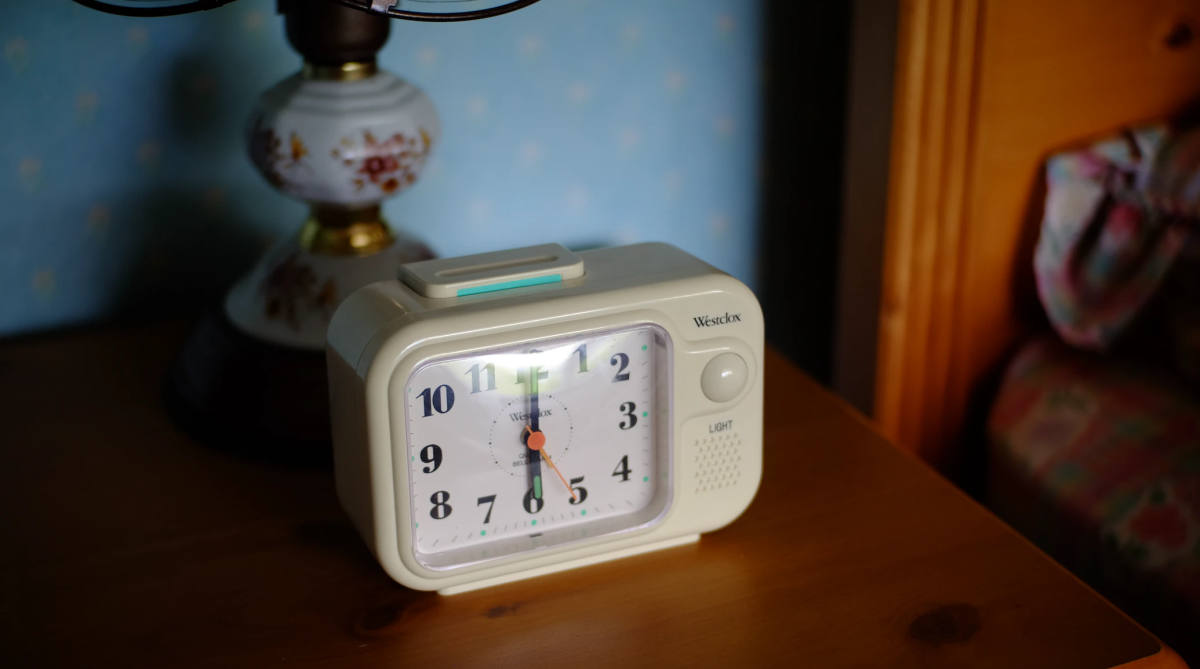
As the days get shorter and the nights get longer, some find their sleep schedule is disrupted, especially when the clock goes back an hour. While you might be used to adjusting your schedule for daylight savings time, you can take some time to combat any negative effects it may have on your body.
Monitor your vitals
Keeping a tab on your blood pressure, heart rate and blood sugar level is a part of the daily routine. However, during winter months, it becomes all the more important. The colder weather conditions may affect your health in more ways than one.
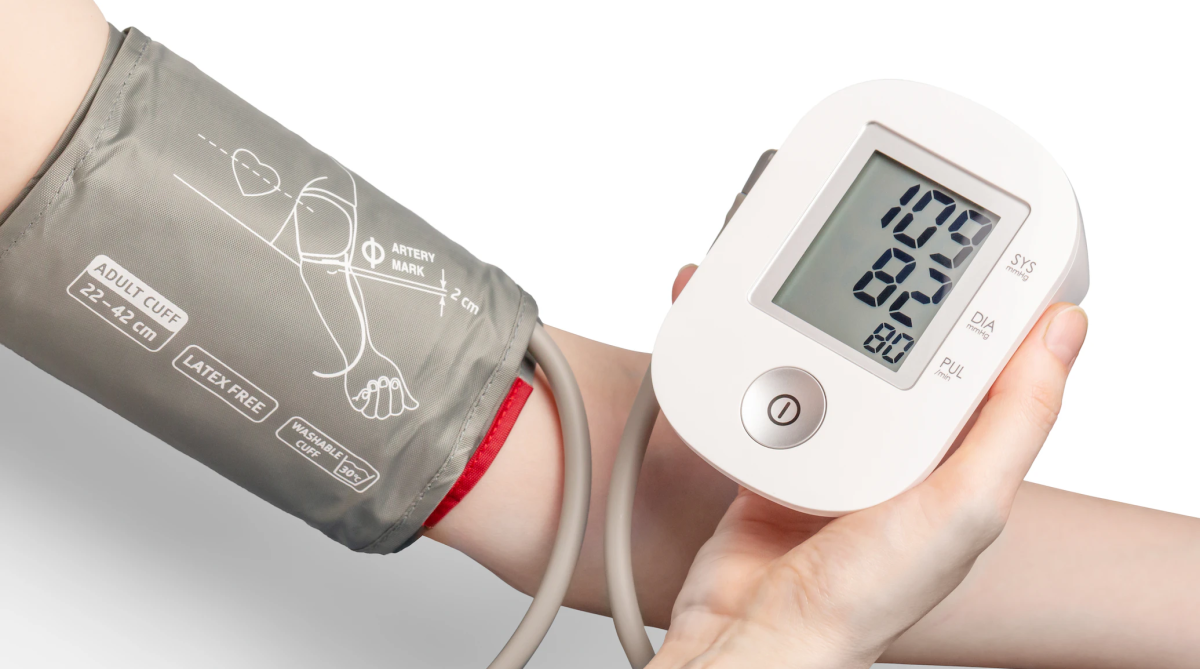
Just as exercising regularly helps keep you fit and fine, keeping a note of your blood pressure, heart rate and blood sugar levels can help you maintain good health all through the season. Hence, it is advisable to consult your doctor in case you experience major fluctuations in these.
Use hand sanitizer
Anything thing most of us learned during Covid-19 is to avoid is touching your face – because you never know what germs have made their way onto your hands and fingertips. To avoid spreading germs by touching your face with dirty hands, use a hand sanitizer with at least 60 percent alcohol.

Alcohol-based hand rubs have other advantages over soap and water. They don’t require a sink, towels or drying time, which can be very helpful in public places such as schools, offices, planes and trains – and unlike some soaps, they don’t leave a residue on the hands.
Watch for signs of SAD
It’s that time of year again. The days are short and cold, and the nights are long and dark. You may struggle with the winter blues each year – feeling a sense of sadness or hopelessness, having trouble sleeping, feeling unmotivated or fatigued, eating more than usual, or spending more time alone.

This may be seasonal affective disorder (SAD), also known as seasonal depression. The good news is that there are steps you can take to help yourself through these feelings. Light therapy is one option: you sit in front of a light box for about 30 minutes a day, which helps your body produce more serotonin.
Drink tea
One go-to way to stay healthy in cold weather is to bring hot tea with you wherever you go. Hot drinks are one of the best things you can do for your health in winter because they warm you up from the inside out.
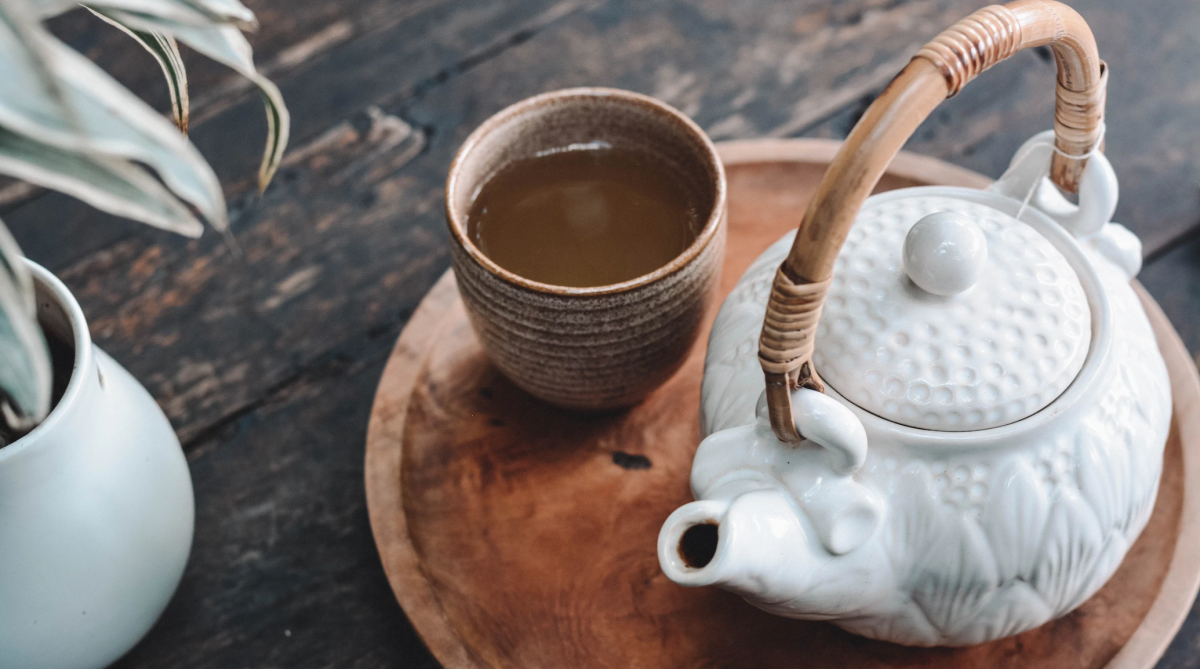
Plus, most of them contain antioxidant compounds that are great for combating free radicals (which are bad because they contribute to aging and chronic diseases). Tea is great at soothing sore throats and keeping you hydrated, too. It’s also just comforting and delicious!